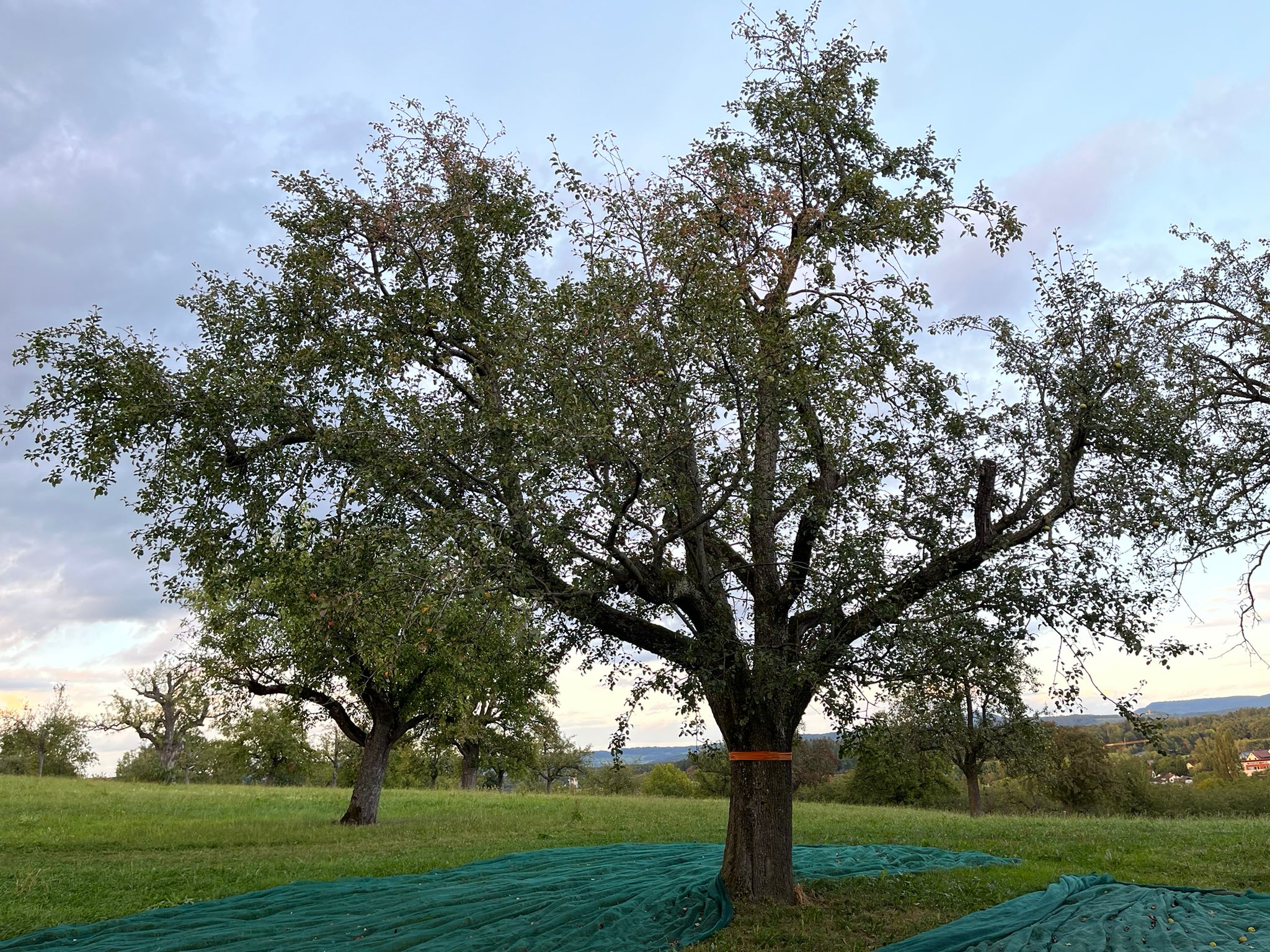29/02/2024

Future-orientated orchading
In times of increasing climate change, the adaptation of agricultural practices is of crucial importance in order to ensure the future profitability and sustainability of production. In this context, orchards play an important role, as they not only contribute to the preservation of biodiversity, but also offer a variety of ecological and economic benefits. This interim report sheds light on the current project, which is focussed on promoting future-oriented and climate change-adapted orchards.
PROJECT OVERVIEW
To date, there has been a lack of systematic studies that have comprehensively recorded the effects of climate change on orchards and the factors that contribute to their resilience to changing climatic conditions. This project aims to close this knowledge gap. Together with stakeholders in the orchard sector, the factors that influence the resilience of orchards will be identified and analysed. Based on this, climate- and area-adapted measures will be developed in order to make orchard cultivation future-orientated and climate-resilient. The studies cover various aspects, including the development of climate-resistant apple and pear varieties, the expansion of the range of products grown in orchards, the added value of orchard products and the development of strategies to combat new pests. One of the key objectives is for all project partners to work closely together in order to achieve the best possible results.
1st objective:
Investigation of variety and rootstock combinations In this part of the project, the climate resilience of cider pear varieties in combination with different rootstocks is analysed. The aim is to understand how well these combinations of varieties and rootstocks cope with changing climatic conditions. In the study, the varieties Champagner Bratbirne and Prevorster Bratbirne were compared on the rootstocks Quitte C, Quitte BA29, Old Home Farmingdale (OHF) 87, OHF 97 and Sämling. The trees were assessed for growth, stability, crown diameter and yield behaviour. The harvest window, ripening process, tannin content, sugar and acid content were recorded for the fruit of the respective combinations. The effects of the rootstock on the start of flowering of the respective varieties are still to be investigated in spring 2024.
2nd objective:
Planting new rootstocks that are resistant to pear decline disease As part of this objective, new rootstocks that are resistant to pear decline disease will be planted. The rootstocks of the company Virutherm Refia 1 and Refia 2 are compared with the rootstock OHF 87. Climate resilience will be evaluated on the basis of leaf sap analyses and growth controls.
3rd objective:
Recommendation of cider pear varieties for fruit wine production, taking into account site adaptation Another central objective of this part of the project is to recommend cider pear varieties that are ideally suited for fermentation and at the same time adapted to the specific site conditions that are changing due to climate change. In addition to a later flowering time, which in particular reduces the risk of losses due to late frost, this part of the project focuses in particular on the sensory evaluation of the fermented product. In addition to the basic analysis of the processed fruit, it is also necessary to carry out trial fermentations. All carried out with the same parameters on a scale of 15 litres each yield comparable results. In the end, it is not the analysis but the sensory evaluation of the fermented fruit wine that decides which varieties are suitable for long-term recommendation. These parts of the Manufaktur Jörg Geiger project contribute significantly to the overall understanding of how varieties and rootstocks react to climate change and what measures can be taken to increase climate resilience in orchards.
RESEARCH FUNDING
The project is being carried out as part of the European Innovation Partnership (EIP) funding programme of the Baden-Württemberg Rural Development Plan 2014-2020 (MEPL III)
